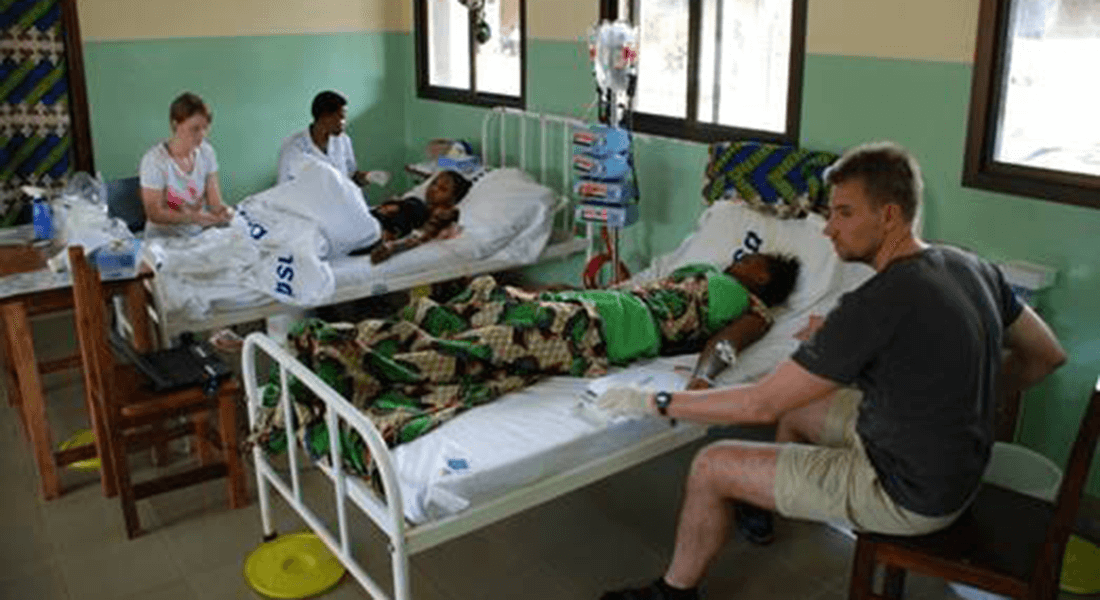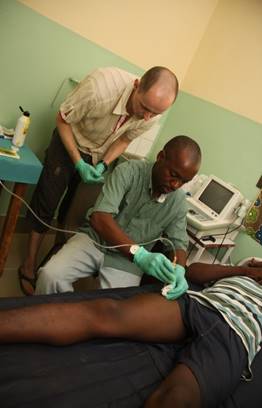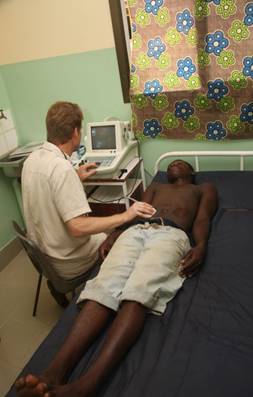Children born from mothers with malaria have a higher risk of developing diabetes
With approximately 50 million annual pregnancies in high-endemic malarious areas worldwide, the impact of malaria exposure is a significant global health problem. Due to the malaria parasite settling in the placenta and preventing nourishment from reaching the baby, it leads to babies being born underweight. Now researchers from University of Copenhagen have found that these babies also have a higher risk of developing diabetes as well as other cardio-metabolic diseases.

The new evidence links malaria exposure during pregnancy to an increased risk of diabetes and other cardio-metabolic diseases in adult offspring. The study sheds light on the potential long-term consequences of foetal malaria exposure, particularly placental malaria, on cardio-metabolic health later in life. We have talked to Dirk Lund Christensen who worked with his team in conducting the study.
Public Health Implications
As Dirk Lund Christensen says: “the clinical results speak for themselves. We have used state-of-the-art methodology, and potentially diabetes – as well as other related cardio-metabolic diseases – can have devastating effects on health and general wellbeing (including severe economic consequences) at the individual, family, and societal level”.
This leads to an emphasis on the importance of preventing malaria in pregnant women to reduce the risk of low birth weight in children, which can lead to an increased risk of diabetes and other metabolic diseases in adulthood. With approximately 50 million annual pregnancies in high-endemic malarious areas worldwide, the impact of malaria exposure during pregnancy is a significant concern.
Significance of the research and the studies framework
Regarding the groundbreaking nature of the research, Dirk Lund Christensen highlights that this is the first study to apply a state-of-the-art methodology to investigate glucose metabolism in young adults exposed to placental malaria in the fetal state. The link between malaria parasitic infection in pregnancy, its impact on fetal development, and the future risk of cardio-metabolic diseases, including diabetes, has been poorly understood until now.

Dirk Lund Christensen and his team established contact to 101 young men and women in north-eastern Tanzania, whose mothers participated in a malaria prophylaxis study 20 years earlier. Of these, 76 were eligible to participate in the study, and from 50 of those, a muscle biopsy was taken. The study participants went through a series of biomedical tests in the district hospital in Tanzania, where they were born. The tests included anthropometry/body composition including among others ultrasound scanning of abdominal fat distribution, a bicycle max-test for aerobic fitness, challenge tests for glucose metabolism, blood pressure measurements, and skeletal muscle test from the thigh (m. vastus lateralis). Pre-study tests of HIV, hepatitis B and (active) malaria were taken.

In comparison to an earlier study, Dirk and his team used a more sophisticated methodology when conducting their study. An earlier study conducted in Ghana by a Ghanaian-German research group did a study in 15-year-old adolescents whose mothers had malaria during pregnancy vs. no malaria during pregnancy. This study only used a fasting blood glucose test, showing an association between malaria exposure during pregnancy and elevated blood glucose levels. Dirk’s study used a much more sophisticated methodology and a study group 5 years older, which together provided the potential for more solid evidence of a link between malaria exposure during pregnancy, and adverse consequences for the child due to hypoxia and sub-optimal nutrition during the foetal state.
Future Research Directions
Dirk Lund Christensen highlights the need for more extensive and extended deep phenotyping studies, including direct measurements of hepatic insulin action, to further elucidate the subtle elevations in plasma glucose levels and their implications for adult offspring of women exposed to malaria during pregnancy. The findings from this research offer critical insights for public health initiatives aiming to reduce the burden of diabetes worldwide. While the results are promising, further investigations are required to better understand the mechanisms underlying the relationship between malaria exposure during pregnancy and the risk of diabetes in later life.
Publication and Acknowledgment
The study's results have already been published in two reputable scientific journals:
Contact
Dirk Lund Christensen
dirklc@sund.ku.dk
